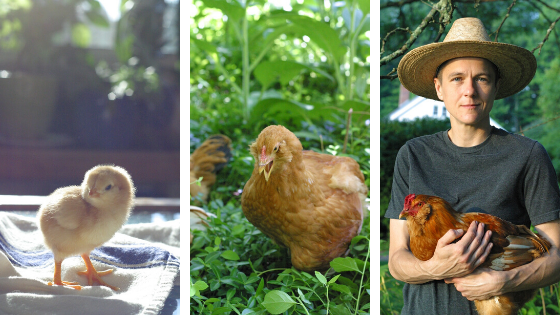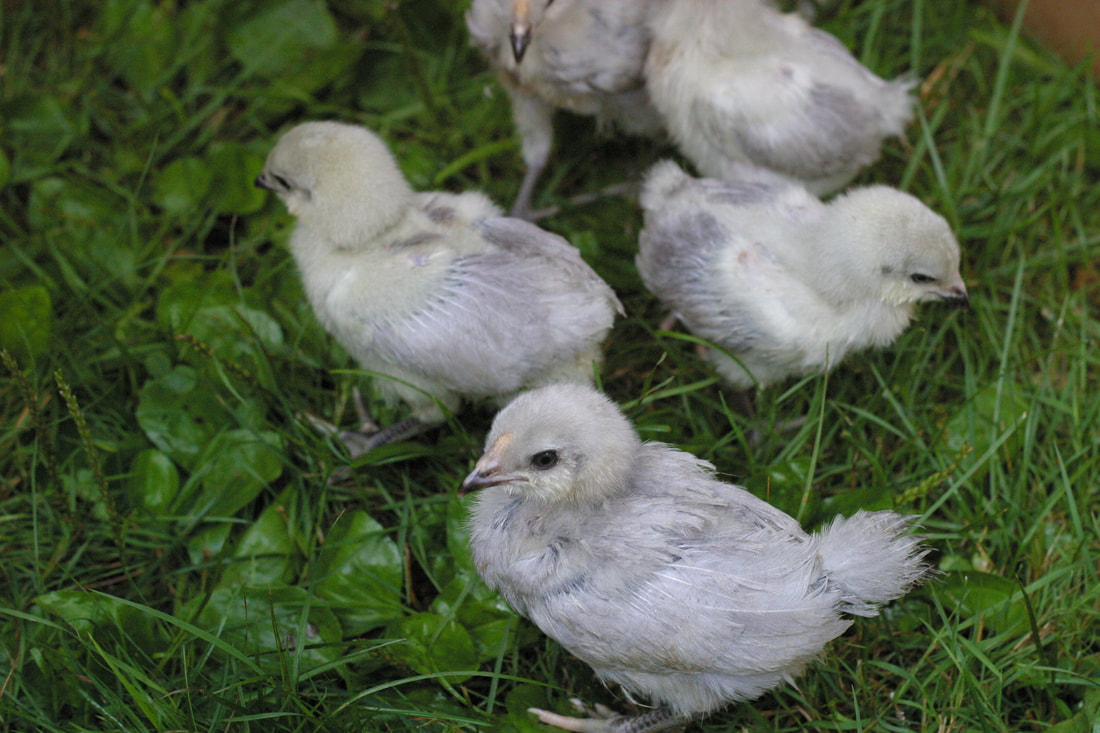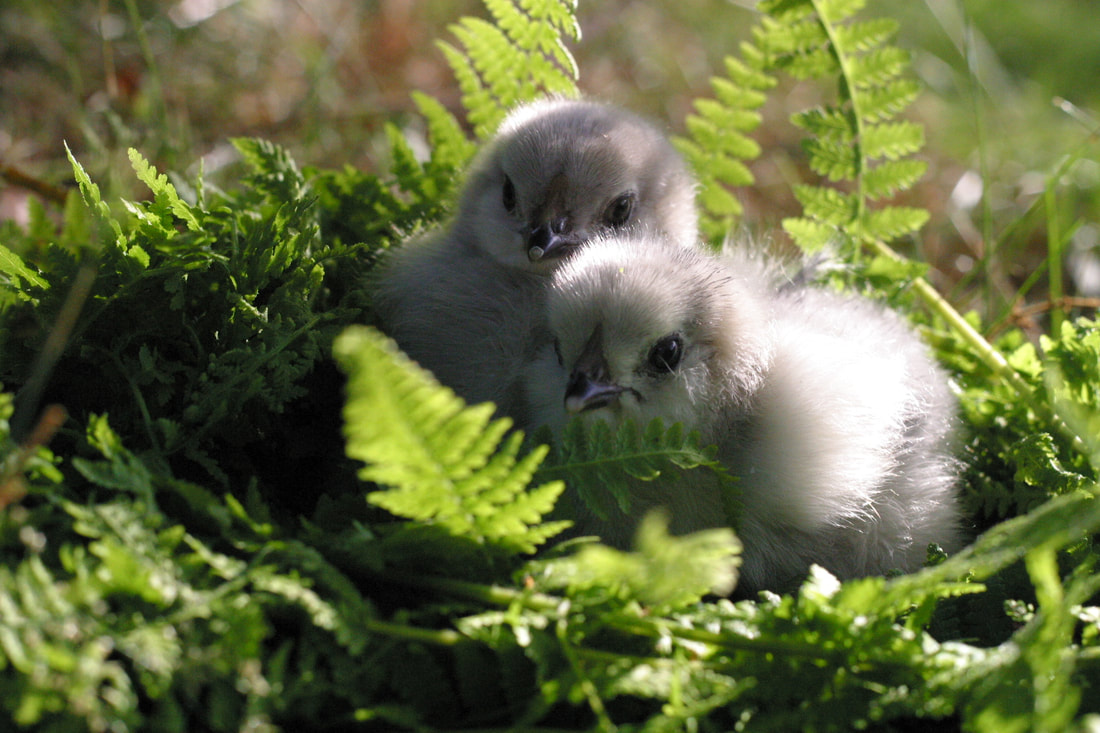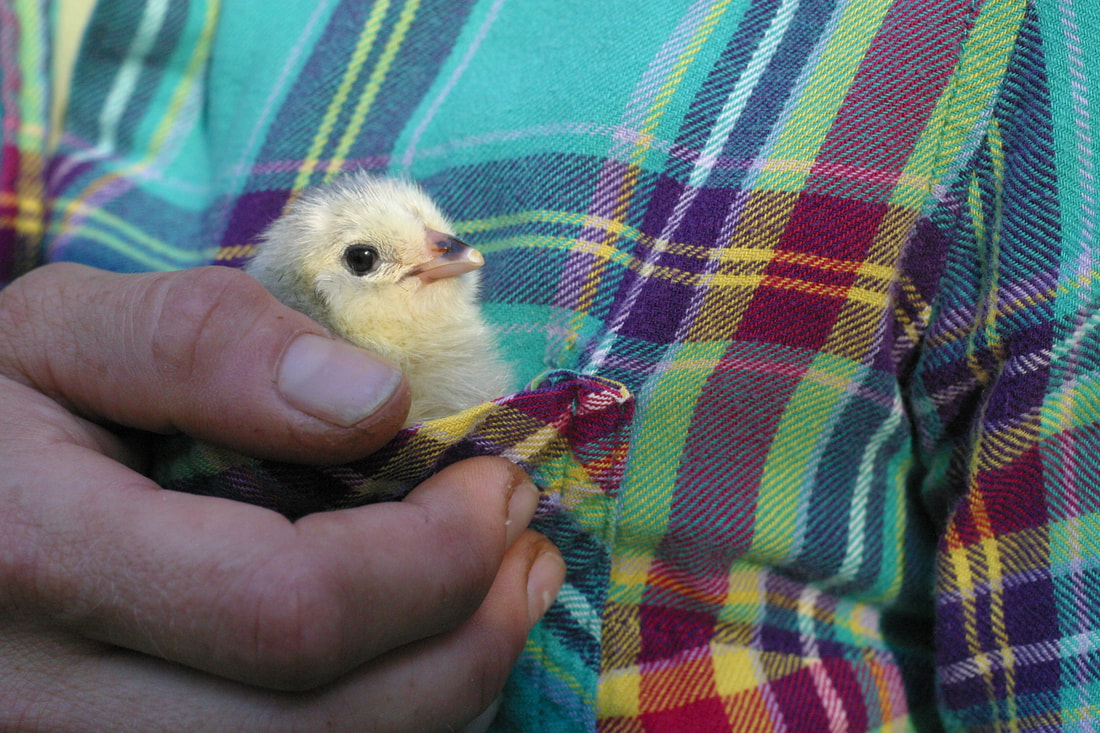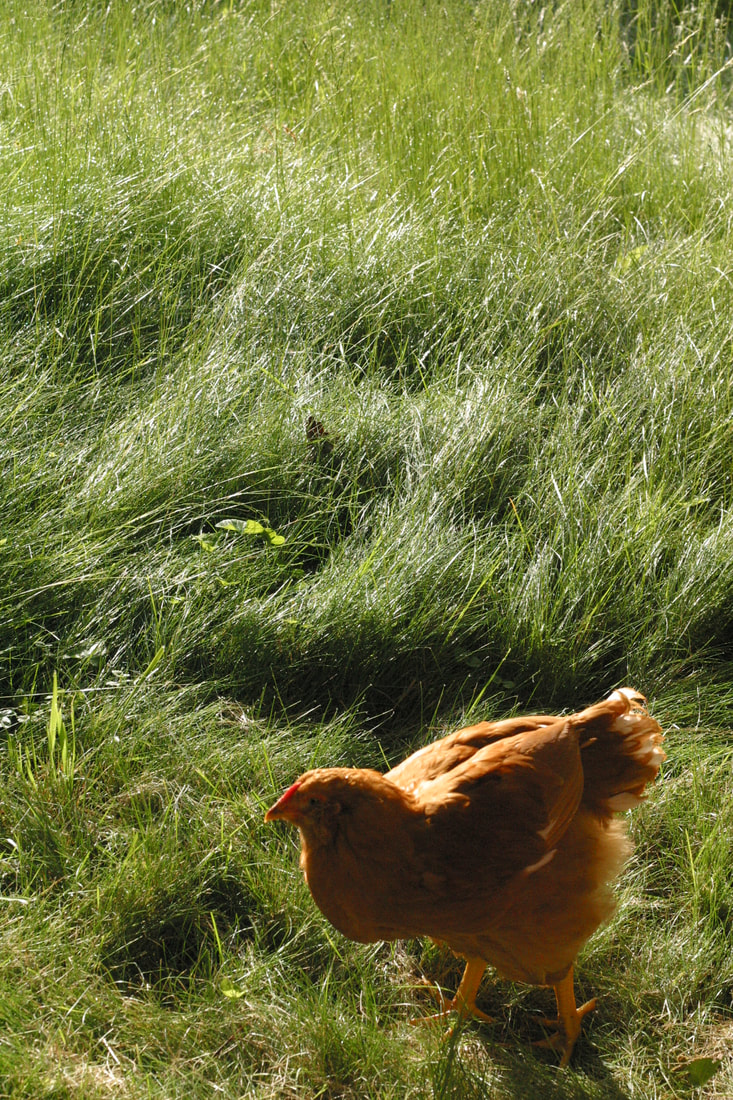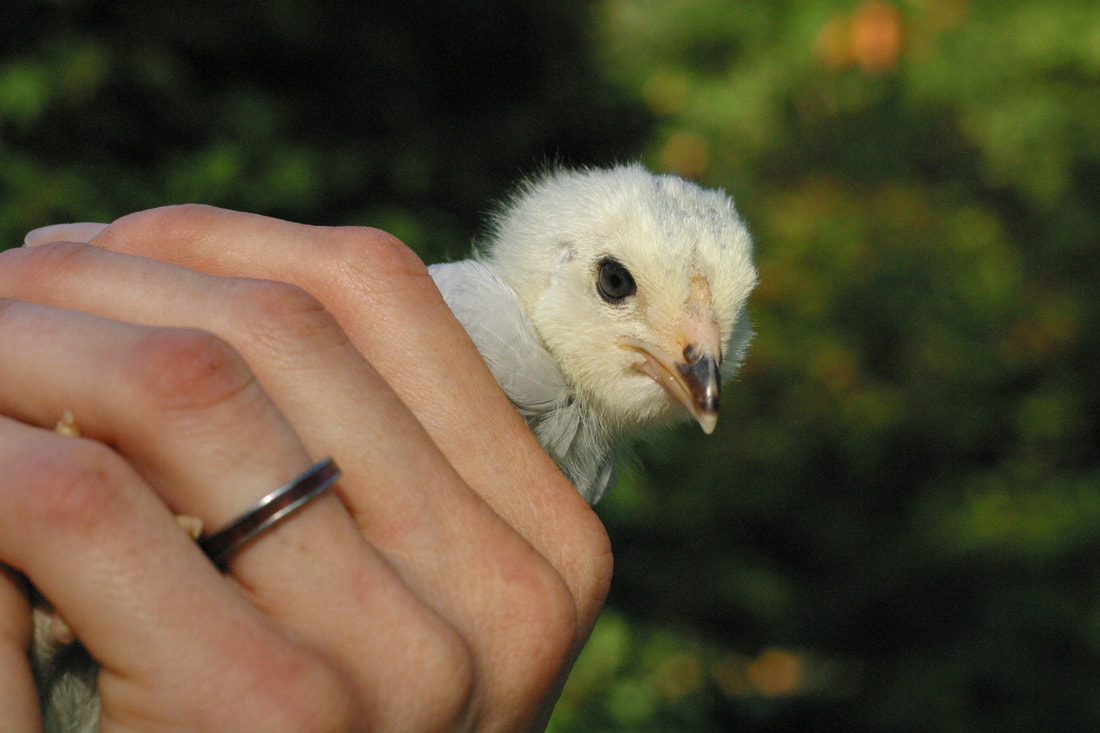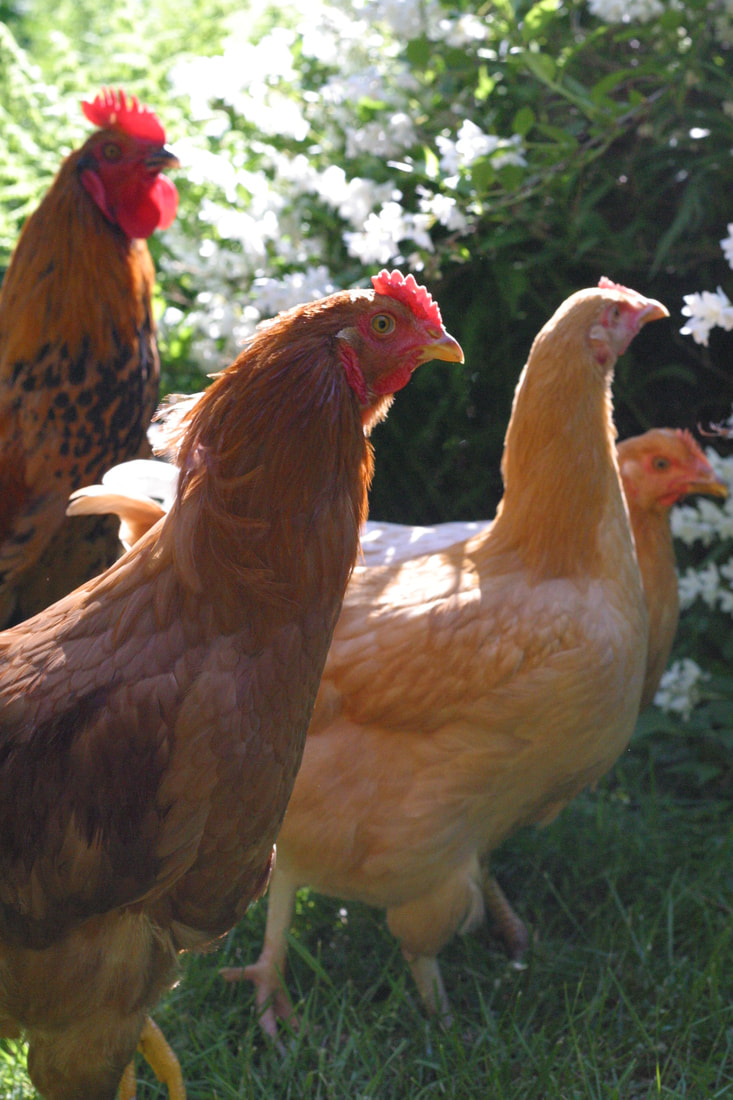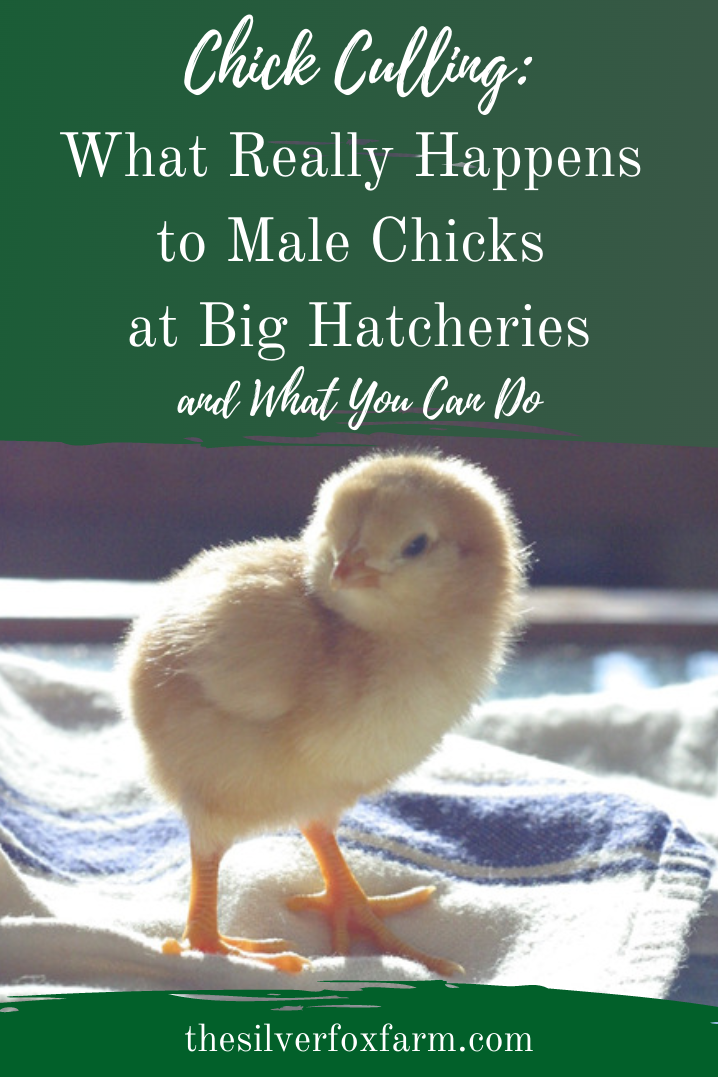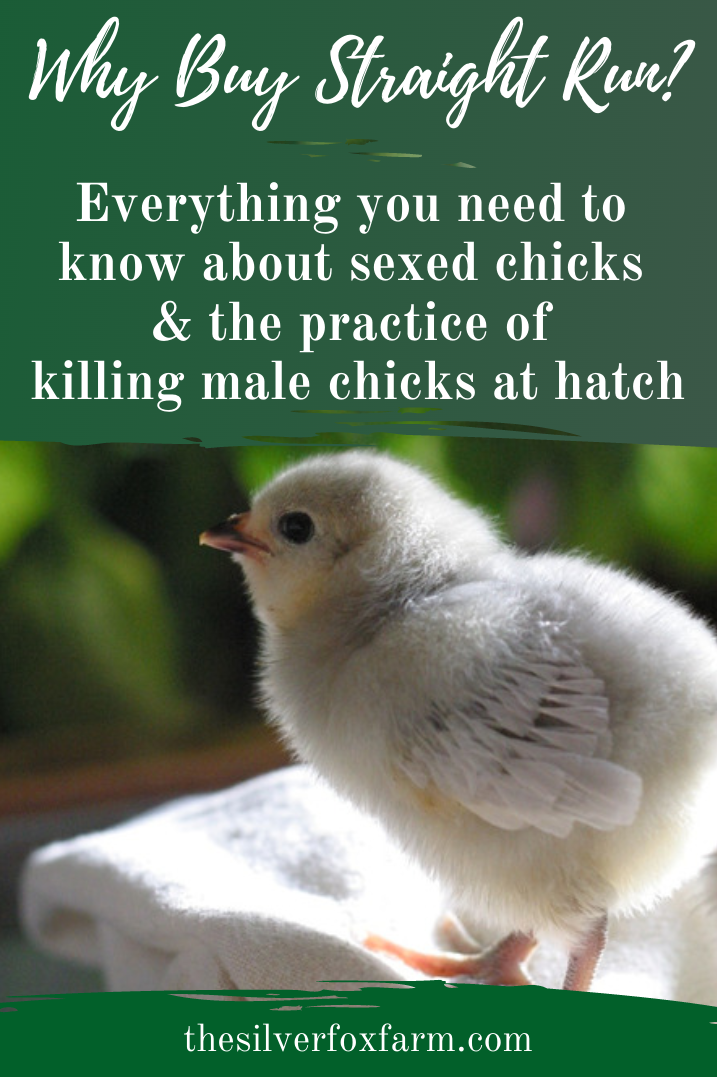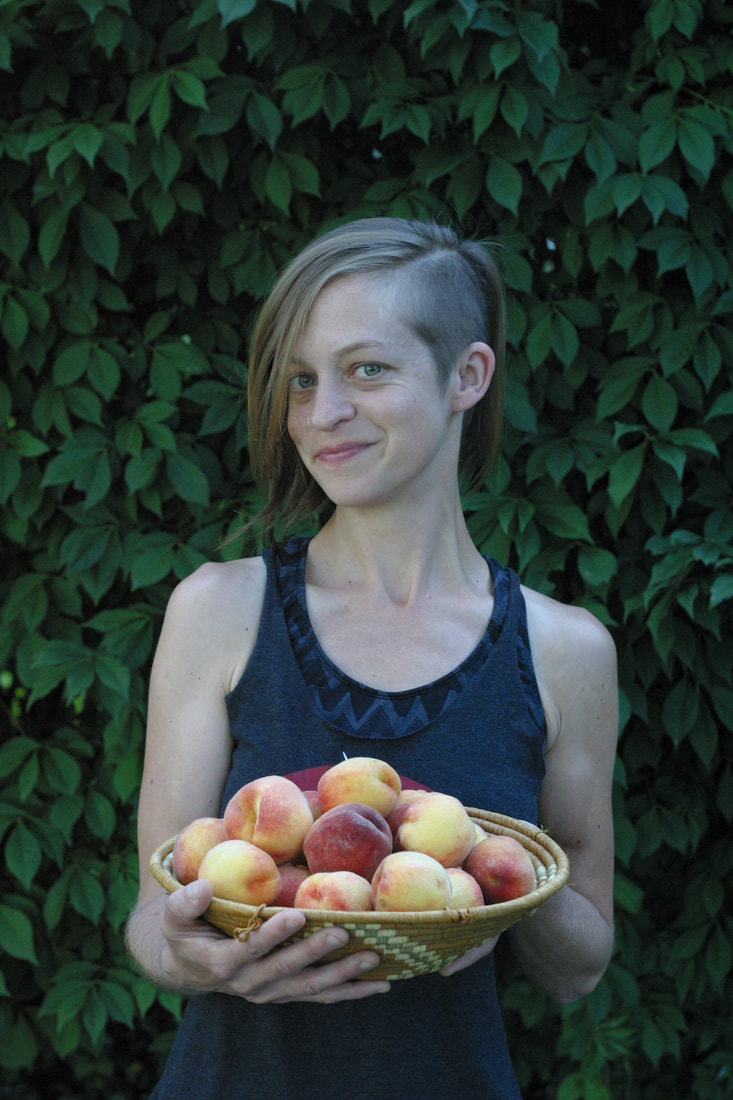|
Why buy straight run? Here's some straight talk on straight run, the sexing of chicks, and the common poultry industry practice of killing male chicks at hatch. On our farm, all male chicks are grown out into beautiful roosters and have the opportunity to lead a quality life. At maturity, our extra boys are swiftly and respectfully processed. We often have friends and family over to help us with this, so that others may practice harvesting their own meat. It’s a powerful experience that has both challenged us and gifted us a completely new relationship with our food. On our farm, humanely raised, pastured meat is a natural byproduct of producing hatching eggs and chicks. Because we are such a small farm, it’s easy for us to absorb our extra roosters, adding them to our freezer or sharing them with friends and family. But what happens in large scale hatcheries? Chick Sexing Across all areas of the poultry industry, chicks are sexed at hatch to determine whether they are male or female. Since all chickens have the same external genitalia, expert chicken sexers are employed to give each chick a squeeze, steal a glance at the chick’s insides, and decide its sex. (Note: don’t try this at home. It requires specialized training and involves some risk to the chick!) If you’ve ever ordered chicks from a hatchery before, you’ve probably come across the phrases “sexed” and “straight-run.” If you order sexed chicks, they’ve been squeezed by an expert and found to be female. Straight-run chicks have not been sexed and are a mix of male and female in a roughly 50/50 split. The practice of sexing was developed because there is a huge demand for female chicks in the poultry industry, whether it’s the commercial egg industry or hatcheries producing for backyard chicken keepers. So what happens to all of those unwanted male chicks? Chick Culling It’s a common practice for male chicks to be killed at hatch, immediately after sexing. This is usually accomplished through grinding, suffocating, or gassing. If your first reaction to this is surprise or horror, I'm with you. How can a living thing be treated like such...trash? If your first reaction is skepticism, I am with you on that too. I didn’t want to believe it either, and went immediately to Google for verification. It was easy to confirm that this was happening in the egg and meat industry. But what about companies that sell day-old chicks to small flock keepers? That information wasn’t easy to find on the web. I didn't feel comfortable claiming that our practices set us apart until I did more research. Acting on a hot tip from another breeder, I made some phone calls to the larger hatcheries and I was able to verify that yes, male chicks are killed at hatch in this part of the industry. In some cases, efforts are made to give chicks away, but the sheer numbers of extra male chicks (tens upon tens of thousands) means that many are killed immediately after they are sexed. After making my calls, I didn’t feel angry. In fact, I was struck with compassion for the person who has to do such a difficult job. I also felt called to dig deeper and ask questions that get to the heart of why this practice exists, even in an area of the poultry industry that supplies folks who love and adore their birds at home. Why are there so many extra male chicks that hatcheries are compelled to destroy them? That answer is easy. Male chicks are destroyed simply because there is no demand for them. At the same time, there is an overwhelming demand for female chicks. As a poultry breeder, I am constantly fielding requests for sexed chicks, pullets, and hens, or inquiries from folks who would like us to take roosters back after they have grown (if not for our biosecurity and our NPIP certification, I totally would). Digging Deeper Why is there no demand for male chicks? Well, as we all know, roosters don’t lay eggs, and they are not a favorite for meat production. But the deeper answer to this question, in my mind, is the same answer to many questions about our current food systems: We are disconnected from our food, where it comes from, and how to produce it. This disconnect manifests in laws around food production and animal keeping in our communities, as well as in our discomfort in producing our own meat. For some folks, they are simply not allowed to have a rooster in their community--as we've grown out of touch from raising our own food, local laws have made it more difficult to do so. Others, perhaps, are nervous to have one because they or someone they know had a badly behaved rooster (which is why we are so careful to breed for temperament). But a huge part of the demand for all-female chicks is our collective discomfort with the realities of meat and the idea of processing our own. Straight run chicks are, on average, half male and half female. This is not a ratio that’s conducive to a happy, balanced flock. Unless you’re ready to house them indefinitely in a cushy bachelor pad, some of those roosters will have to be processed. If not by you, by someone else. Reasons to Buy Straight Run If you eat meat and are allowed to have roosters, I encourage you to try harvesting your own meat in addition to eggs. If you’re uncomfortable with the idea of processing your own roosters, I understand. After being vegetarian for the better part of 20 years, I was too--but I’m really glad I pushed through the discomfort, for both myself and our birds. Consider these two scenarios: Scenario 1: You decide to get 6 sexed (female) chicks for your flock. You grow them out and enjoy their eggs. Unbeknownst to you, your chicks’ six male counterparts were killed at hatch in order for the hatchery to fulfill your order. Scenario 2: You know that you want 6 hens for your flock, so you order a straight-run of 12 chicks, hoping for a solid 50/50 split (results may vary, especially with a small sample size!). You grow all 12 out. Six are hens, awesome! You decide to keep your favorite rooster. This leaves 5 roosters that you need to deal with in order to keep your flock happy and balanced. You're nervous as heck, but with some help from friends and a quality YouTube tutorial you process all 5. It's a powerful experience. They enjoyed a full life, and you learned something and fed your family healthy pastured meat in the process. A lot of people want to buy sexed chicks because they are understandably uncomfortable with the killing of roosters and hope to avoid it. The reality of sexed chicks is that it merely outsources the killing, while at the same time hiding it from view. Buying straight-run is an opportunity to both offer male chicks a quality life and connect with your food in a powerful way. My intent here is not to point fingers at anyone who purchases sexed chicks, nor is it my intent to rail against the hatcheries that kill at hatch. I think it’s more important and constructive to look at this situation and ask, why are things this way?
The first step is to understand that it's happening, and to understand that it's a result of supply and demand. It's a situation born of our laws around keeping livestock, our desire for convenience, our discomfort and disconnection around our food sources, and our unwillingness to partake in the process of harvesting our own meat. If we’re not okay with this, can we change it? How can we create a future where animals are not treated this way, where the need to kill male chicks is lessened or eliminated? Buying straight run if you can is one small way to do that. Raising and processing your own eggs and meat helps you close the loop on your protein and connect, deeply, with where your food comes from. It helps create a world where animals are valued and cared for.
26 Comments
Deborah Mossington
3/20/2021 10:07:51 am
Thank you so much for sharing this. I hope to start my own flock next year, and thought to get straight run so I could have the opportunity to harvest my own roosters as needed. This reaffirms that, and inspires me. I was vegetarian for several years for ethical reasons but after my dad died I went back to eating meat out of comfort and connection, cooking meals I knew he liked and recipes he'd taught me, and I haven't stopped out of habit. I'm feeling more and more that if I'm unable to harvest an animal, I shouldn't be having someone else do it and be eating their meat. I hope to take this spiritual journey soon. Thanks again for sharing your experience and inspiring others <3
Reply
Marisa
4/3/2024 10:57:09 am
Beautifully stated. I am still vegetarian because of how disgusting the meat industry is in USA . Not strict by any means, but I avoid steak and pork and occasionally eat chicken from sources I trust. I have a hen and rooster and want chicks, but have been tormented by what we would do with the roosters. This all makes me feel much better about the idea of raising them, giving them a good life, and then harvesting them as humanely as possible. It will be a spiritual journey and it will create a connection to my food that I’ve never had before. 💙
Reply
Kelsey
5/17/2021 06:59:41 am
We just started our first flock this year and plan to continue/ expand for many many years as we have a lot of land. We purchased some straight run and some sexed. After reading this and learning what happens to those sexed cockerels 😭 I will only buy straight run in the future or hatch my own. I am nervous about processing our extra roosters but also kind of looking forward to it at the same time.
Reply
Maeg
5/19/2021 04:55:34 am
Hi Kelsey! Thanks so much for reading. I know, I was pretty shocked to find out what happens to those babies, too. I wish you luck with your first processing experience--for me it was really intense, but also satisfying. And much easier than I had anticipated. You got this!
Reply
Amanda
3/10/2022 04:18:57 pm
Wow, thanks for this. We are preparing to start our small backyard flock and I was sure we were going to get pre-sexed birds. We will not be doing this now and have already talked with our kids about the sexing process and how we will be harvesting our roosters with humane practices.
Reply
Stephen Mahlstedt
4/24/2022 08:23:03 am
Thank you for the informative and well-written article. I have a question that I hope isn’t a silly one. My wife and I are preparing to order chicks for the first time, and one thing I was wondering was how long it takes for a rooster to become vocal and potentially disturb our neighbor, whose house is very close in proximity to our coop? Would we be able to harvest and eat the roosters before they get to the point where they become vocal and loud, or does that happen early on in their life?
Reply
Hi Stephen! Don't worry, there are no silly questions :)
Reply
STEPHEN MAHLSTEDT
4/25/2022 01:00:03 pm
Thank you, Maeg. I really appreciate the helpful information!
Denise
5/4/2022 01:08:16 am
I come from a long line of family farmers. In case any of your readers are interested in hatching their own eggs to replenish their home flock I can explain to a high degree of accuracy how it can be done successfully so that up to 100% of the hatched chicks will be female…the eggs can either be hatched in an incubator or under a hen is going broody (wants to set on the nest all of the time). Look at the available eggs. If the eggs have two round ends it will hatch a hen chick. If it has one round end and one pointed end it will hatch a rooster chick. Keep the eggs you want to set to hatch and mark each with a x or date you l checked it.
Reply
hakan
4/22/2023 12:38:59 pm
This is really interesting.. Then why don't hatcheries use this practice?
Reply
Dottie Rhodes
7/14/2023 12:38:36 am
I rarely repond to comments, but this is the most ridiculous thing I've heard in a long time! You're saying two round ended eggs are female and eggs with a round and pointy are male?! So what are the regular shaped oval eggs, which are the majority of what we see?! Please don't contribute unsubstantiated false information! If there was any degree of truth to this, it would be common knowledge and practice, as female chickens are definitely much more sought out.
Reply
Jaimie Kulas
8/9/2022 11:03:29 am
As someone who is starting the homesteading journey, and has a chicken coop being built this week, I’ve been researching a lot on how to start. This article completely changed my approach on getting our chicks. We wanted to process our own chickens someday but honestly, was hesitant to do it. This inspired me to take the step in connecting more with our food, and harvesting humanely. Thank you!
Reply
Koa
3/13/2023 05:34:47 am
OR, is it because if we have our own roosters and hens, we can breed our own and will no longer need government controlled hatcheries or cloned grocery store, white chickens? 🤔
Reply
Alanah
3/15/2023 07:05:22 am
Just a wonderful article! So thoughtfully written. Thank you so much for sharing this useful information!
Reply
kimberly
3/17/2023 04:25:09 am
Please stop patting yourself on the back for killing animals the nice way. You are still taking a life and eating traumatized flesh.There is still karma attached
Reply
Bob
3/21/2023 06:29:16 am
You are implying the culled chicks are wasted but in fact they are processed into pet food ingredients as “chicken meal” “chicken byproduct” or “animal protein product” . Nothing is wasted in the poultry industry.
Reply
Melissa Booth
5/22/2023 02:12:09 am
I purchase straight runs, mainly because we love the roosters, don't get me wrong we eat eggs but the roosters put on a show and they protect their harem. And each rooster has their own little harem to protect and make sure they get to the hen house on time before the door closes. At night it is funny when all the boys chase the girls in, then puff up like they are something special because they did their job.
Reply
Bonnie
7/2/2023 01:25:12 pm
I read all this and what they do to make chickens and just cried my eyes out......humans are the most cruel thing on earth.......why not let them grow on these farm and then sell for meat........everything that has a heartbeat needs a chance to live!........ I buy straight run babies and keep them......I keep them until they live out their life and then get more........sorry I don't agree with most of you but I'm not into it big time.....I only have 6 at a time.......but my opinion is to let everything know what life is and a chance to enjoy......
Reply
Natalie
10/6/2023 10:24:16 pm
We purchased straight run. End up with 50/50. Processed my roosters with help from friends as this was my first time doing such. Do you have any recipes for using this meat. The first one I cooked in a slow cooker & the meat was ok but kinda reminded me of canned chicken with a more mealy texture.
Reply
Kevin Hale
1/10/2024 09:06:26 pm
I grew up on a farm and when it became time to put the birds in the freezer we did it as humanly as possible. We kept calm didnt chase the chickens all over the place and scream and yell. We tried to keep the chickens as calm as possibleeaten and used a very sharp ax. The birds were taken away from the other birds and not left to fly around and squirt blood every where as i so often saw my neighbors do. I personally think that anyone who eats meat should know and understand the process that it took to put that meat on the table. Animals are not here to be taken for granted, misused, or beaten. I suggest that all take a clue from Temple Grandin who believed every animal deserved a proper death without as much stress and fear as possible.
Reply
Deidre king
7/22/2024 04:30:57 pm
Everything on this earth is meant for human enjoyment and consumption. WE need nature. It's for us. Nature doesn't need US. We are part of the food chain and it's humbling to process an animal . I do so with great humility since I started raising animals for meat.
Reply
Leanne Prescott
1/29/2024 07:03:19 pm
I have seen at least a couple of (will remain nameless) very large hatcheries that are now offering batches of random breed roosters that are extras from their sexed chicks in their meat bird sections. I think this is a great win-win because the birds that are bred for meat production that can't even walk past 8 weeks or live in horrific pain if you don't slaughter them are pretty unethical in my opinion. They have found a way to monetize their waste and a small farm or homestead can process their own meat very affordably and ethically that way. And hey maybe you luck out and you get that perfect roo for your flock of a really nice breed and one or two don't get culled.
Reply
Erik Robinson
4/6/2024 10:00:25 am
Bough two orders from one of the well-known hatcheries. One all female, the other was straight-run. Of the ten females three showed up DOA and a couple more passed within two days. All the straight-run were fine. I have to wonder if the process done to check gender may have had something to do with the number of girls in the order that didn't make it. We picked up another order of straight run at a local feed store to keep our total count at 20 Buff Orps. First timers with raising/keeping chickens. We started out with rabbits, enjoyed the process and took the chicken leap this year. 40 acres in the country, we figured why not? There are definitely worse hobbies to occupy time with.
Reply
Deidre king
7/22/2024 04:26:42 pm
What do you feel is the difference between killing the male chick at birth and killing it once it's grown out to eat it. Either way you are killing the male chick. I don't see any issue with disposeing of the male chicks since your going to be investing so much feed only to kill it anyways and eat it. Better to just raise the hens and eat some of them when they stop laying eggs.
Reply
Leave a Reply. |
Hi, I'm Maeg.Welcome to our blog! Categories
All
|
©
The Silver Fox Farm

